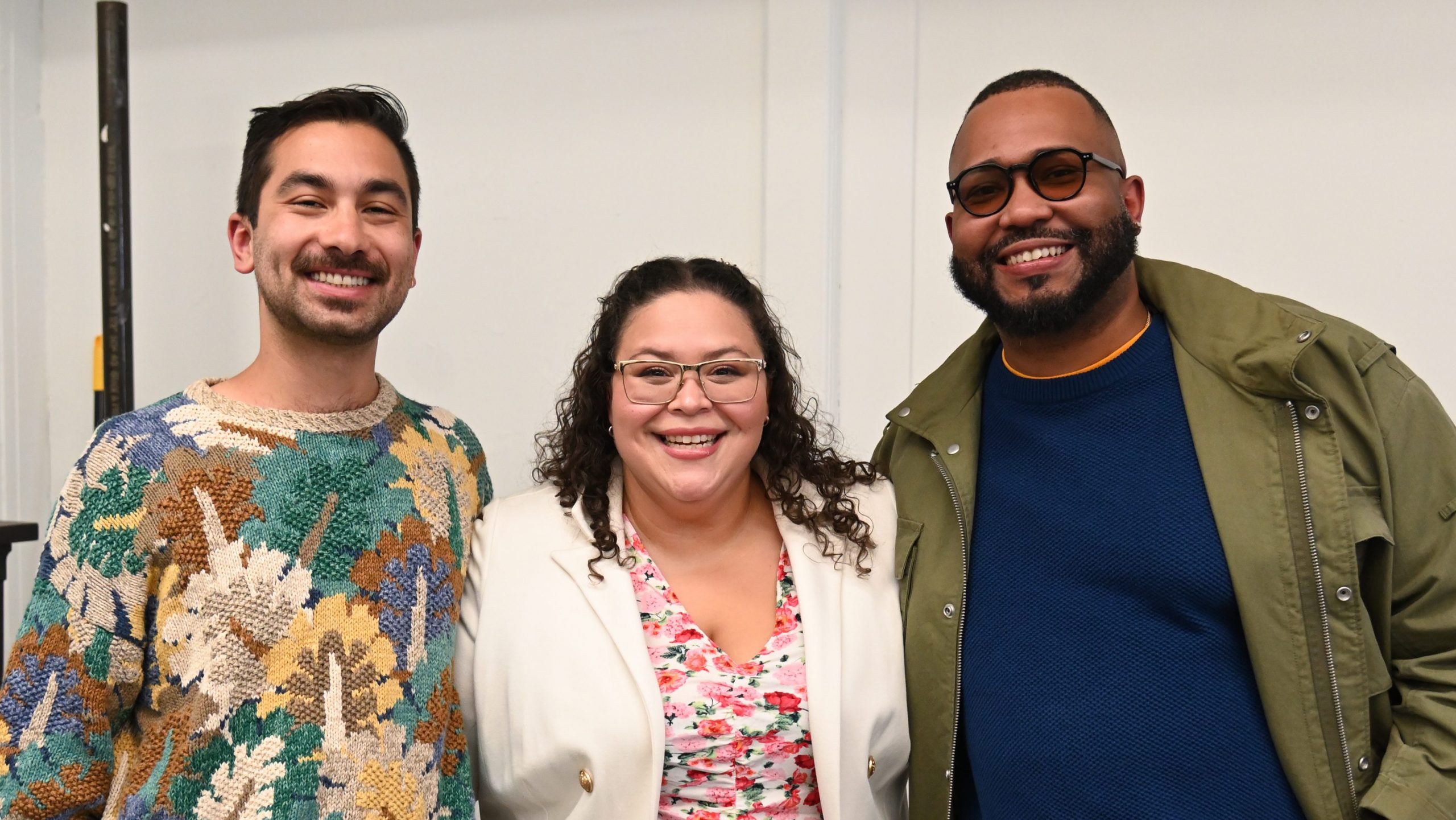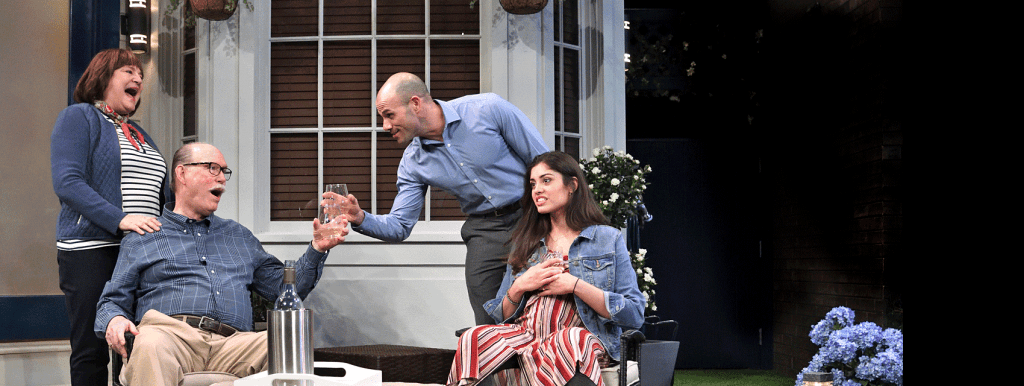Translating Magic: A Note from the Adapters of La Tempestad
written by Orlando Hernández, Tatyana-Marie Carlo, and Leandro “Kufa” Castro
Haga clic aquí para leer en español.
In the diaspora, you make a home where you never imagined you would—like the generations of folks from the Dominican Republic, Colombia, Guatemala, Cambodia, Cape Verde, and elsewhere who have all made their home in Rhode Island. So we made a home in Shakespeare’s text.

We first adapted La Tempestad — The Tempest for Teatro en el Verano, a collaboration between Rhode Island Latino Arts and Trinity Rep that brings free, bilingual shows to parks and public spaces around the state. In particular, the project connects with neighborhoods where Latino diasporas have made their home. The island of La Tempestad became Jenks Park in Central Falls, Dexter Park and Cranston Street, Roger Williams Park and la Broa’. Bachata, reggaetón, and hip-hop from passing cars became the soundtrack for the island’s magic.
We addressed these communities, and built on Shakespeare’s text by drawing from our and our families’ experiences as immigrants and migrants, letting that guide our translation choices. For example, Ariel code-switches through different languages and registers, negotiating his position under Prospero’s control. Caliban wields his languages with a bitter tongue, an open wound. Stephano and Trinculo clown each other and plot their rise to power. Our audiences could appreciate the beauty, absurdity, and pain that comes with adapting to new contexts and living in multiple languages.
When we come to the US, it’s often because our homelands have been taken or troubled, and this is the result of a historical process that comes up in The Tempest itself. Prospero arrives on the island and claims it, subjugating its magic to his own. He enslaves its people and manipulates its resources. Shakespeare was writing about what was actually happening: European settlers were doing this to our islands and our Taíno and African ancestors. The Tempest was part of a growing European “colonial imaginary”—the narratives, representations, and fantasies that accompany and justify colonial projects.

Part of the labor of cultural workers is to challenge this colonial imaginary by creating narratives and representations that assert our communities’ presence, connection to land, and freedom. Colonizers claim that land is empty, available for them to take, or they dehumanize the people who live there to the point that extermination can seem inevitable or justified. We see this in the accounts of Europeans who determined that the land we’re now on was the place for them to live out their ideas of freedom, at the expense of the Indigenous communities already here.
Puerto Rico, a US colony since 1898, is currently experiencing a new wave of colonial control and displacement. Faced with austerity measures and economic hardship, many Puerto Ricans have been leaving the archipelago. Literal tempests like Hurricane María in 2017 have further intensified social conditions and led to the privatization of public infrastructure. Meanwhile, settlers have been moving to Puerto Rico for cheap property, tax breaks, and the allure of living out fantasies, like Gonzalo, of being “king of this isle.”

A question lingers at the end of La Tempestad. What will Caliban and Ariel do after Prospero and everyone leave? It’s a question we ask in the Global South—in Haiti, in Congo, in Palestine—and in tribal nations, places that were formerly or are still being colonized, our people exploited and our resources stolen. How do we move forward from these legacies of violence? How do we reclaim our land, our stories and destinies? Imagine the worlds we will build when our magic serves us.
